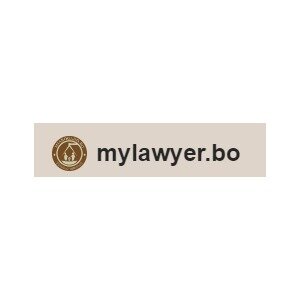Best White Collar Crime Lawyers in Sucre
Share your needs with us, get contacted by law firms.
Free. Takes 2 min.
List of the best lawyers in Sucre, Bolivia
About White Collar Crime Law in Sucre, Bolivia
White collar crimes in Sucre, Bolivia, generally refer to non-violent crimes that are financially motivated and typically occur in the business or financial sectors. These crimes include fraud, embezzlement, bribery, insider trading, and money laundering. The Bolivian legal system, which is based on civil law derived from the Napoleonic Code, handles such offenses with a variety of penalties, including fines, restitution, and imprisonment. As Sucre is the constitutional capital of Bolivia and home to many governmental and judicial institutions, it plays a central role in the enforcement and adjudication of white collar crime laws.
Why You May Need a Lawyer
Individuals may require legal assistance in white collar crime for several reasons. You might be accused of a crime such as fraud or embezzlement, find yourself entangled in complex financial disputes, or require defense in bribery allegations. A legal expert can help navigate these situations, ensuring that your rights are protected and providing strategic advice on the best course of action. Furthermore, businesses often seek legal counsel to ensure compliance with local laws to prevent any future legal conflicts.
Local Laws Overview
The Bolivian Penal Code outlines various provisions relevant to white collar crime. Key aspects include stringent regulations around financial transparency, penalties for corruption, and regulations pertaining to corporate governance. The legal process involves investigations led by specialized units, and the judiciary in Sucre is well-versed in handling such intricate cases. Compliance with both local and international standards is crucial for businesses operating in Bolivia, making understanding these laws essential for anyone involved in corporate affairs.
Frequently Asked Questions
What are common examples of white collar crimes?
Common examples include fraud, embezzlement, bribery, tax evasion, insider trading, and money laundering.
How serious are the penalties for white collar crimes in Bolivia?
Penalties can be quite severe, ranging from significant fines and restitution requirements to lengthy imprisonment, depending on the nature and severity of the offense.
What should I do if accused of a white collar crime?
Seek legal counsel immediately. An experienced lawyer can provide guidance on what steps to take and help protect your rights during investigations and any legal proceedings.
Can a case of white collar crime be settled out of court?
Yes, in some instances, cases can be settled out of court through negotiation, mediation, or plea bargains, depending on the circumstances and legal advice.
Are businesses in Sucre subject to specific compliance laws?
Yes, businesses must adhere to local and international standards regarding financial transparency, anti-bribery regulations, and corporate governance to avoid legal issues.
How long does a typical white collar crime investigation take?
The duration can vary widely based on the complexity of the case, ranging from a few months to several years.
Is there a statute of limitations on white collar crimes in Bolivia?
Yes, like many legal systems, Bolivia has statutes of limitations, but the specific timeframes can vary depending on the type and severity of the crime.
Can international businesses be subject to Bolivian white collar crime laws?
Yes, international companies operating in Bolivia must comply with local laws and regulations in addition to any applicable international laws.
Are legal proceedings in Sucre conducted in Spanish?
Yes, all legal proceedings in Bolivia are conducted in Spanish, and non-Spanish speakers may require translation services.
What role do regulators play in preventing white collar crime?
Regulators enforce compliance, investigate potential violations, and continually develop policies to mitigate the risk and occurrence of white collar crimes.
Additional Resources
Individuals seeking further assistance can contact a variety of resources such as the Bolivian Ministry of Justice, local law schools, and non-profit organizations specializing in legal aid. Additionally, consulting professional associations, such as the Bolivian Bar Association, can provide guidance and referrals to qualified legal practitioners specializing in white collar crime.
Next Steps
If you need legal assistance with a white collar crime issue, the first step is to consult with a qualified attorney who has experience in this field. Collect any relevant documents and information related to your case. Initiate contact with a reputable law firm or seek recommendations from professional networks or associations. Your attorney will guide you through the process, provide legal options, and assist in mounting a defense or ensuring compliance with all applicable regulations.
Lawzana helps you find the best lawyers and law firms in Sucre through a curated and pre-screened list of qualified legal professionals. Our platform offers rankings and detailed profiles of attorneys and law firms, allowing you to compare based on practice areas, including White Collar Crime, experience, and client feedback.
Each profile includes a description of the firm's areas of practice, client reviews, team members and partners, year of establishment, spoken languages, office locations, contact information, social media presence, and any published articles or resources. Most firms on our platform speak English and are experienced in both local and international legal matters.
Get a quote from top-rated law firms in Sucre, Bolivia — quickly, securely, and without unnecessary hassle.
Disclaimer:
The information provided on this page is for general informational purposes only and does not constitute legal advice. While we strive to ensure the accuracy and relevance of the content, legal information may change over time, and interpretations of the law can vary. You should always consult with a qualified legal professional for advice specific to your situation.
We disclaim all liability for actions taken or not taken based on the content of this page. If you believe any information is incorrect or outdated, please contact us, and we will review and update it where appropriate.








